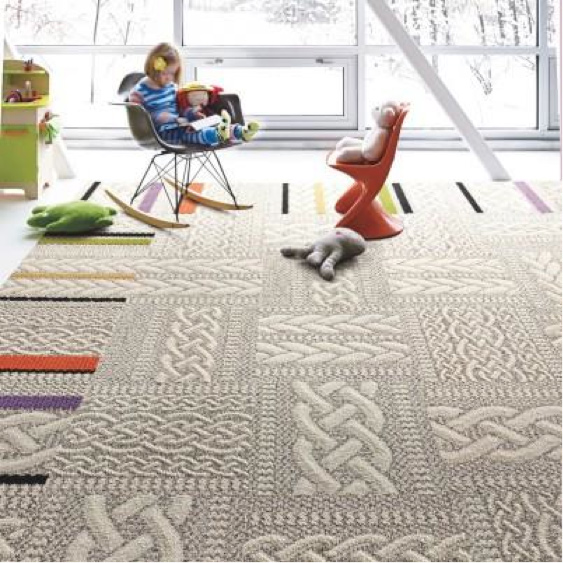
We have compiled a helpful list of terms to assist you. Whether you are a tenent, rental owner, or someone just considering their options- knowing these terms can help you feel confident as you go through the property management experience.
A
Agent – Refers to someone authorized by another (principal) to act for or in place of the principal; one entrusted with another’s business.
Amenity – A feature of real property that enhances its attractiveness and increases the occupant’s or user’s satisfaction although the feature is not essential to the property’s use. Human-made amenities include swimming pools, tennis courts, community buildings, and other recreational facilities.
Apartment – A room or a group of related rooms, among similar sets in one building, designed for use as a dwelling.
Application – A form used to apply for a sale or rental for a prospective owner or tenant. The association may also have applications for use of clubhouse and other facilities.
Areas of Responsibility – A document that outlines and defines the maintenance and/or insurance obligations of the association and its board of directors.
Articles of Incorporation – Documentation filed with a Secretary of State’s office which establishes general information about a corporation and its purpose.
Assessment – Assessment is the fee or dues payable by members of an association. Assessments are determined annually in advance by the board of directors as part of the budgeting process. Assessments may take the form of a regular (annual) or special assessment (for a special project or purpose).
Association – Association means a non-profit corporation or unincorporated association created for the purpose of managing a common interest development.
Asset – Anything of monetary value that is owned by a person. Assets include real property, personal property, and enforceable claims against others (including bank accounts, stocks, mutual funds, and so on).
B
Balance Sheet – A financial statement that shows assets, liabilities, and net worth as of a specific date.
Bankrupt – A person, firm, or corporation that, through a court proceeding, is relieved from the payment of all debts after the surrender of all assets to a court-appointed trustee.
Bankruptcy – A proceeding in a federal court in which a debtor who owes more than his or her assets can relieve the debts by transferring his or her assets to a trustee.
Betterment – An improvement that increases property value as distinguished from repairs or replacements that simply maintain value.
Board Meeting – Board Meeting includes any congregation of a majority of the board members at the same time and place to hear, discuss or deliberate upon any item of business scheduled to be heard by the board, except those matters that may be discussed in executive session.
Board of Directors – The governing body of a corporation such as an association. The board is elected by the members of the association who elect the officers. The directors and officers have a duty to comply with the governing documents of the association and all applicable laws.
Breach – A violation of terms of any legal obligation.
Budget – The financial plan for an association which estimates income and expenses for a specific time period.
Building Code – Local regulations that control design, construction, and materials used in construction. Building codes are based on safety and health standards.
By-Laws – Formal rules and regulations adopted by an association which govern its activities and actions of the board of directors. The bylaws address such things as elections of both directors and officers, the holding of meetings, rights to notice and the powers of directors and officers.
C
Capital – (1) Money used to create income, either as an investment in a business or an income property. (2) The money or property comprising the wealth owned or used by a person or business enterprise. (3) The accumulated wealth of a person or business. (4) The net worth of a business represented by the amount by which its assets exceed liabilities.
Capital Expenditure – The cost of an improvement made to extend the useful life of a property or to add to its value.
Capital Improvement – Any structure or component erected as a permanent improvement to real property that adds to its value and useful life.
CC&Rs – Covenants, Conditions and Restrictions are the association’s governing documents; also referred to as the declaration, rules, regulations, or master deed. The CC&Rs are filed in the real property records of the county in which the association is located. (See Declaration.)
Certificate of Deposit – A document written by a bank or other financial institution that is evidence of a deposit, with the issuer’s promise to return the deposit plus earnings at a specified interest rate within a specified time period.
Certificate of Title – A statement provided by an abstract company, title company, or attorney stating that the title to real estate is legally held by the current owner.
Collection – The efforts used to bring a delinquent assessment current and to file the necessary notices to proceed with foreclosure when necessary.
Common Area(s) – The improved real property shared by the members of an association. The common areas typically include, but are not limited to, landscaped areas, driveways, clubhouse, hallways, pools and elevators.
Common Area Assessments – Levies against individual unit owners in a condominium or planned unit development (PUD) project for additional capital to defray homeowners’ association costs and expenses and to repair, replace, maintain, improve, or operate the common areas of the project.
Community Association – A property owners’ association requiring mandatory membership bound by governing documents which require individual owners to pay assessments for the maintenance and administration of the common areas.
Condominium – Condominium consists of an undivided interest in real property, which is the common area, coupled with a separate interest in space called a unit, the boundaries of which are described in the condominium documents.
Conversion – A conversion condominium is one in which the building or buildings originally existed with units that were rented (for instance, an apartment). Essentially, the apartments are “converted” into condominiums by filing a declaration of condominium, conditions and restrictions, and selling units.
Cooperative (Co-op) – A development in which a corporation holds title to all improved real property and the corporation’s shareholders receive a right of exclusive occupancy in a portion of that real property.
D
Declarant (Developer) – The person or group who either signs the original declaration governing the development and association or acquires the original developer’s (declarant’s) rights.
Declaration – Sometimes referred to as the “master deed,” “documents,” or “declaration of covenants, conditions, and restrictions” (CC&Rs); it describes an owner’s responsibilities to the association including payment of dues and assessments as well as the association’s duties to the owners. It is essentially the constitution of the association.
Deed – The legal document conveying title to a property.
Default – Failure to make loan payments on a timely basis or to comply with other requirements of a mortgage.
Delinquency – Failure to make assessment when mortgage payments are due.
Directors & Officers Liability Coverage – Insurance coverage that protects the association’s volunteer board members in lawsuits brought due to their actions taken on behalf of the association. Board members are not protected from actions proven to be criminal or negligent. It also covers errors and omissions by board members.
E
Easement – An interest or right in real property, which grants a right to a landowner to use the land of another for a special purpose. An association may often have an easement for slope maintenance or other repair purposes, or a public utility may have an easement for use of maintenance or repairs.
Employee – Employee is a worker that performs services subject to the will and control of the employer, both as to what will be done and how it will be done. The employer establishes hours of work, may provide training, and the worker may not assign anyone to do the required work.
Encroachment – Anything belonging to one landowner that extends onto an adjacent landowner’s property such as a fence, landscaping, etc.
Eviction – A legal proceeding by a landlord to recover possession of real property from the tenant.
F
Fair Housing Act – The federal law that prohibits discrimination in housing based on race, color, religion, sex, handicap, familial status, and national origin.
Fiduciary – The highest ethical and moral obligations and duty of good faith a person is charged with for fulfilling their responsibilities. The board of directors of a community association has a fiduciary responsibility to act in the best interests of the association.
Flood Insurance – Insurance that compensates for physical property damage resulting from flooding. It is required for properties located in federally designated flood areas.
Foreclosure – The legal process by which a borrower’s interest in mortgaged property is taken because of a default on the loan. This usually involves a forced sale of the property at public auction with the proceeds of the sale being applied to the mortgage debt.
Forfeiture – The loss of money, property, rights, or privileges due to a breach of legal obligation.
G
Governing Documents – The declaration, bylaws, operating rules, articles of incorporation, CC&R’s or other documents which govern the operation of the association.
Grantee – The person to whom an interest in real property is conveyed.
Grantor – The person conveying an interest in real property.
H
Hazard Insurance – Insurance coverage that compensates for physical damage to a property from fire, wind, vandalism, or other hazards.
Homeowner’s Insurance – An insurance policy that combines personal liability insurance and hazard insurance coverage for a dwelling and its contents; usually called an HO6 policy for condominium and townhomes.
House – A building in which people live; residence for human beings.
I
Independent Contractor – An independent contractor is a worker hired to do a specific job over which the employer has no right to control the manner in which the work is done. The worker is generally licensed and offers services to the public. Independent contractors establish their own hours and receive no training. Independent contractors are free to assign work to others, if they determine to do so.
Injunction – A request for the court to require a party to stop doing something (or in some cases to do something) until the situation can be resolved legally.
Insurance – A contract that provides compensation for specific losses in exchange for a periodic payment. An individual contract is known as an insurance policy, and the periodic payment is known as an insurance premium.
Insurance Binder – A document that states that insurance is temporarily in effect. Because the coverage will expire by a specified date, a permanent policy must be obtained before the expiration date.
Investment Property – A property that is not occupied by the owner and is generally rented to a tenant to produce income.
J
Judgment – A decree by a court of law that one person, a debtor, is indebted to another, a creditor, in a specified amount. The court may place a lien against the debtor’s real property as collateral for payment of the judgment to the creditor.
Judgment Lien – A lien on the property of a debtor resulting from a judgment.
L
Late Charge – The penalty paid when a payment is made a stated number of days (usually 10-15) after the due date.
Lease – A written or oral contract between a landlord (the lessor) and a tenant (the lessee) that transfers the right to exclusive possession and the use of the landlord’s real property to the lessee for a specified period of time and for a stated consideration (rent). By state law, leases for longer than a certain period of time (generally one year) must be in writing to be enforceable.
Lease Term – The term or duration of the lease that the landlord (lessor) and tenant (lessee) agree that tenant will occupy, or have possession of the real property.
Lessee – The tenant that has the possession of the real property for the lease term for a specified consideration (rent).
Lessor – The landlord that has given possession of their real property for the lease term for a specified consideration (rent).
Lien – A monetary claim made against a property for unpaid mortgage, taxes, contractor work, or other charges. A lien attaches to the property, not the owner, but must be recorded in the property records of the resident county.
Liquid Asset – A cash asset or an asset that is easily converted into cash.
M
Maintenance – The care or upkeep of a property or unit. This usually does not increase the value but keeps the property in good working order (i.e. grass cutting, minor plumbing repair, fixing leaky sink, etc.).
Managing Agent – A person or entity hired to assist the board of directors in enforcing the documents and managing the assets, including funds, of the association.
Management Agreement – Management Agreement is the contract between an association and management company setting forth the rights and obligations of the parties. These agreements may be “full service” or “financial service” contracts. Some management companies provide more services than others.
Master Association – Sometimes condominiums are created using master and sub associations. For example, there may be both a residential condominium and a commercial condominium created by the same declarant and on one site. In that case, there may be a master condominium that includes them both, the declaration for which would govern them both.
Mechanics’ Lien – Mechanics’ Lien is a right provided by law to individuals and businesses that make improvements to real property and who are not paid. Mechanics include any worker or business that supplies building materials or labor for the construction or improvement of real property.
Money Market Account – A savings account that provides bank depositors with many of the advantages of a money market fund. Certain regulatory restrictions apply to the withdrawal of funds from a money market account.
Money Market Fund – A mutual fund that allows individuals to participate in managed investments in short-term debt securities, such as certificates of deposit and Treasury bills.
Mortgage – A legal document that pledges a property to the lender as security for payment of a debt.
Multi-Dwelling Units – Properties that provide separate housing units for more than one family, although they secure only a single mortgage. Typically a 2-4 unit property.
N
Net Income – The amount of money remaining after deducting total expenses and expenditures from total income.
Net Loss – This occurs when expenses are more than income.
Notary – An official authorized by law to attest and certify certain documents by his or her hand and official seal.
Notice of Noncompliance – Similar to a lien, this notice is sometimes authorized under the CC&Rs and may be recorded in the county property records to notify prospective buyers that the property is in violation of the documents.
Nuisance – Arises from a person’s use of their property in violation of rules, laws, or standards which obstructs or injures the rights of another and creates annoyance, an inconvenience, or discomfort. Examples of nuisance can be loud noises, odors, or vehicles in disrepair on a property.
O
Ordinances – Laws adopted by local government at the county and city level.
P
Personal Property – Any property that is not real property or is not permanently fixed to land or structure.
Planned Development – A common interest development other than a condominium or cooperative. The common area is often owned by the association, however, it may also be owned in common by the owners of the separate interests. The separate interest is a lot, parcel, area or space, not a unit.
Power of Attorney – A legal document that authorizes another person to act on one’s behalf. A power of attorney can grant complete authority or can be limited to certain acts and/or certain periods of time.
Primary Residence – The place someone lives most of the time.
Property – A piece of land or real estate, including any permanent fixtures attached to the land or real estate.
Property Management Agreement – The contract between an association and property management company setting forth the rights and obligations of the parties. These agreements may be “full service” or “financial service” contracts.
Property Manager – Someone who manages real estate for another person or corporation for compensation. Duties include collecting Association fees, maintaining the property via independent contractors, and providing the Board of Directors with appropriate accounting for Association.
Proxy – The power granted by one person to a representative to vote for the person. A proxy form is often completed by an owner who is unable to attend an Association meeting so that a quorum can be achieved at the meeting.
PUD (Planned Unit Development) – A project or subdivision that includes common property that is owned and maintained by a homeowners’ association for the benefit and use of the individual PUD unit owners. It is a newer concept in housing designed to produce a high density of dwellings and maximum use of open spaces. The concept is an “overlay” zoning, which enables a developer to obtain a higher density (and sometimes a mixed use for commercial and industrial) than is permitted by the underlying zoning.
Q
Quitclaim Deed – A deed that transfers without warranty whatever interest or title a grantor may have at the time the conveyance is made.
R
Real Estate Agent – A person who is normally licensed by the state and who, for a commission or a fee, assists in negotiating a real estate transaction.
Real Property – Land and appurtenances, including anything of a permanent nature such as structures, trees, minerals, and the interest, benefits, and inherent rights thereof.
Recuse – To temporarily remove an association member or board member or disallow his or her participation in a particular vote or proceeding.
Remedy / Relief – Compensation sought by a plaintiff which can include money damages, injunctions, etc.
Rent – A fixed, periodic payment made by a tenant of a property to the owner for possession and use, usually by prior written agreement of the parties.
Repairs – Improvements made on properties that enhance the value or fix something outdated or broken.
Reserves – Funds set aside by a community association for the future repair of, replacement of, or additions to major components the association is obligated to maintain.
Reserve Study – A study of the association’s reserve account requirements which identifies the major components for which the association has maintenance responsibility and their probable remaining useful life. It estimates the cost for the components and the total contribution necessary to finance those costs.
Review – An analysis of an association’s books and financial records that is less stringent than an audit.
Right of First Refusal – A provision in a Declaration requires the owner of a property to give another party the first opportunity to purchase or lease the property before he or she offers it for sale or lease to others.
Rules & Regulations – Rules the association’s board is authorized to adopt to implement and interpret the CC&Rs.
S
Second Home – A property occupied part-time by a person in addition to his or her primary residence.
Security Deposit – A payment by a tenant, held by the landlord during the lease term, and kept (wholly or partially) on default or destruction of the premises by the tenant.
Single Family Residence – A residential structure designed to include one dwelling.
Statute of Limitations – A time period during which a complaint must be filed or it is not recognized.
Sub-Association – In a condominium, there may be a master association and one or more sub-associations. Sub-associations are subject to the terms of both the master association declaration and sub-association declarations.
Subdivision – A housing development that is created by dividing a tract of land into individual lots for sale or lease.
Survey – A drawing or map showing the precise legal boundaries of a property, the location of improvements, easements, rights of way, encroachments, and other physical features.
T
Title Insurance – Insurance provided by a title insurance company that reviews all recorded documents that impact the title of a particular piece of real estate. This title “search” discloses mortgages, liens, or other encumbrances on the property that would negatively impact the purchaser’s ownership rights.
Title to Real Estate – Ownership of land and the right to use it.
Townhouse – Is not a legal form of ownership, but an architectural style. Townhouses may be condominiums or planned developments. Townhouses are multi-level homes, usually built in rows with individual garages. The homes are not stacked one on top of another so that no owner lives above or below another owner.
U
Undivided Interest – Refers to the type of ownership interest that the owner of a separate interest has in the common area. In a condominium or planned development, this undivided interest consists of a tenancy in common which means that each owner having an undivided interest may use all or any portion of the common area, subject to any restrictions set forth in the Declaration or CC&Rs.
W
Waiver – The voluntary relinquishment of a right, claim, or privilege.
Z
Zoning – A comprehensive system of land use controls normally reserved for city or county governments.
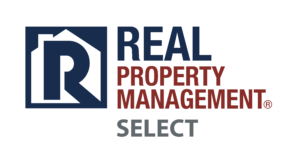

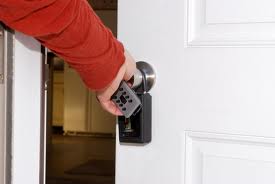


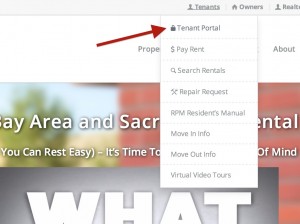 The first thing you need to do is sign up for a tenant portal account. You access the tenant portal from our website
The first thing you need to do is sign up for a tenant portal account. You access the tenant portal from our website 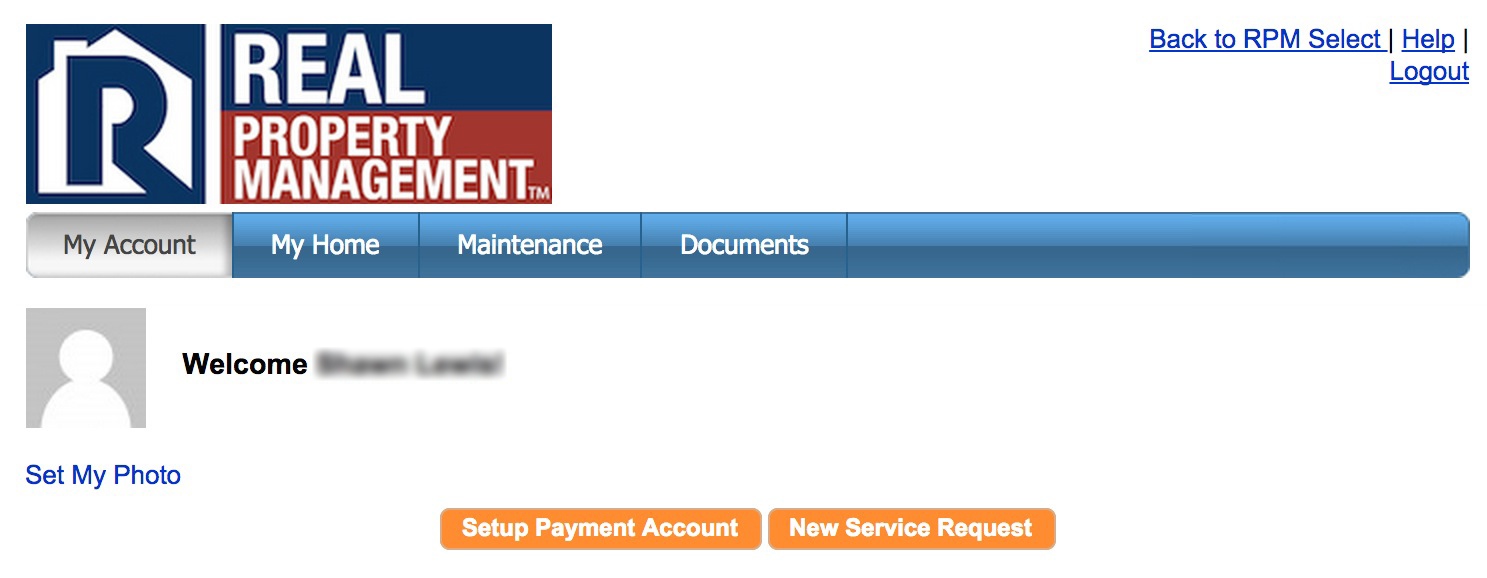 The following links are located in the upper right-hand corner of your portal and direct you to different locations.
The following links are located in the upper right-hand corner of your portal and direct you to different locations.


 Go kayaking on Lake Natoma at the Sacramento State Aquatic Center. You can rent kayaks, stand up paddle boards, canoes, and water bike paddle boats. You can paddle for hours and never reach the other end of the lake!
Go kayaking on Lake Natoma at the Sacramento State Aquatic Center. You can rent kayaks, stand up paddle boards, canoes, and water bike paddle boats. You can paddle for hours and never reach the other end of the lake!

